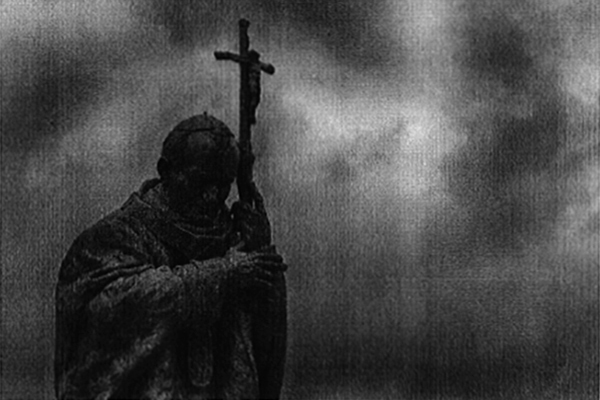“Wojtyla’s syndrome”, in an allusion to Karol Wojtyla (1920-2001), Rome’s bishop under the name John Paul II (1978-2005), is proposed to refer to individuals of great responsibility who, in spite of suffering invalidating and highly restraining illnesses (in the case of the pope, Parkinson’s disease, among many other medical conditions), refuse to retire and continue performing their customary tasks, often with superhuman efforts.
Faced with their conspicuous physical sufferings, those afflicted by such a syndrome counteract it with an almost heroic attitude where force of will seems to conquer any adversity or, to put it in theological terms, as if the Spirit acted as the dominating force and so it outdid matter and its miseries. For physicians, who often recommend rest or retirement, this tenacity and stubbornness to be at the helm turn out to be incomprehensible at times.
Such a behavior, which might be called “stoical”, can have several explanations and motivations. It may result from a very high sense of responsibility or from a refusal to accept one’s own deficits, which would be almost a denial in the psychodynamic sense of the term. Likewise, it may come from a genuine calling to martyrdom or even from a disproportionate narcissism, which might go unnoticed to those afflicted who “offer” such a suffering to God or to any other higher deity when physical pain has become invested with an uncommon connotation in the contemporary world which is considered “hedonist” or “epicurean,” a world where physical and psychological suffering is to be avoided no matter what. Such an attitude brings about not only admiration but nervousness and anxiousness as well in those around them, who at times have to pick them up from the floor… in the best case scenarios, and often do not know how to act in front of them. To expose to other people’s eyes the evidence of such a deterioration, of such a “shipwreck” (“the shipwreck of elderly” according to General Charles de Gaulle), is a true prudence-defying exhibition. It may have a theological didactic goal (like the Spaniard king Philip II showing in his agony to his daughters the putrid sores of his cadaver-to-be so that they became aware of the end awaiting this world’s majesty and glory), or to emerge as a daring challenge against a blind and senseless Nature.
We hope this proposal brings about interest and discussion themes among phenomenologists and psychopathologists who have been able to elude the influence of current diagnostic manuals.











 nueva página del texto (beta)
nueva página del texto (beta)



